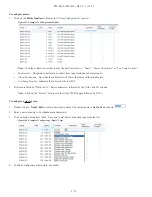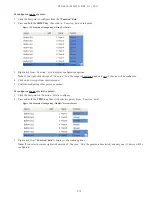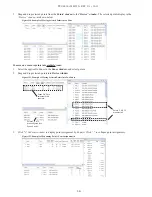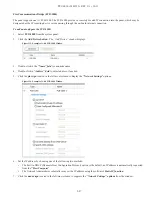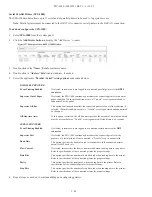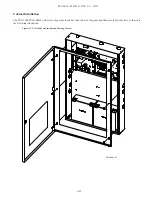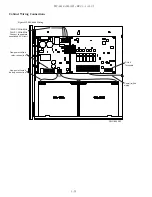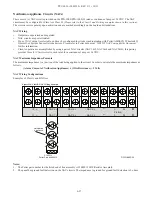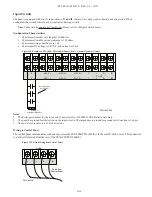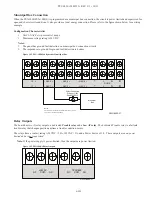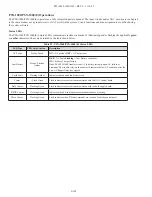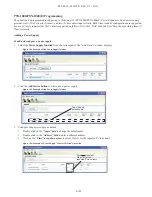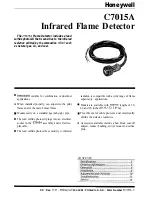
5-89
PFC-6030 • 5403595 • REV C-1 • 10/13
DACT (UD-1000)
Each system may have one DACT module or Digital Alarm Communicator Transmitter. The DACT provides notification to a
remote monitoring company when alarms, troubles and supervisory conditions occur.
Programming options allow you to select separate accounts for test events and alarm, trouble, and supervisory conditions. You
may set up telephone parameters, such as number of rings, when and where to send reports
by specifying phone numbers and
other report output options. An example of the
Add – Dialer window
is shown.
Figure 128. Example of DACT Add-Dialer Window
Notes
:
1.
A daily test is automatically sent to a remote monitoring location; the test time may be programmed through the
General Options program window
–
“Time to Send Autotest” field
.
2.
If the system has been programmed to use a dialer, and two (2) phone lines are used, DACT will alternate between
lines on each daily call.
3.
If a DACT (UD-1000) is installed
and the IP Communicator is programmed, the daily test call can be sent to both
reporting accounts.
(Please refer to Section 7 for more information on the IP Communicator.)
4.
If a DACT is not installed and the IP Communicator is not programmed, the system will operate as a local panel.
Reporting Accounts
The “
Reporting Accounts” section
is used to program DACT operations and to customize the format of the reporting accounts.
You may choose different settings for Alarms, Troubles, and Supervisory conditions. Up to five (5) primary and secondary
reporting accounts may be configured.
Figure 129. Example of Dialer Reporting Options
These fields are important! Be sure to
modify # of rings and line prefix fields
according to your site's telephone setup!
Refer to procedures on next page.




